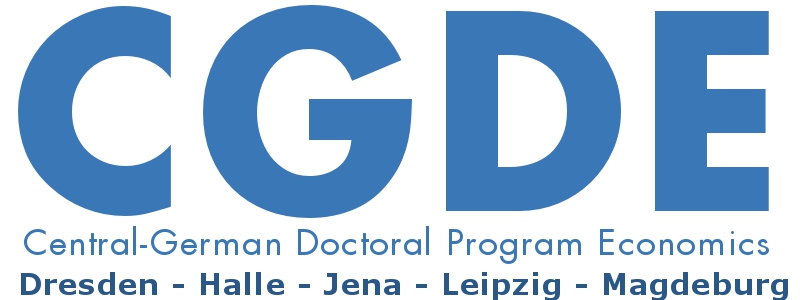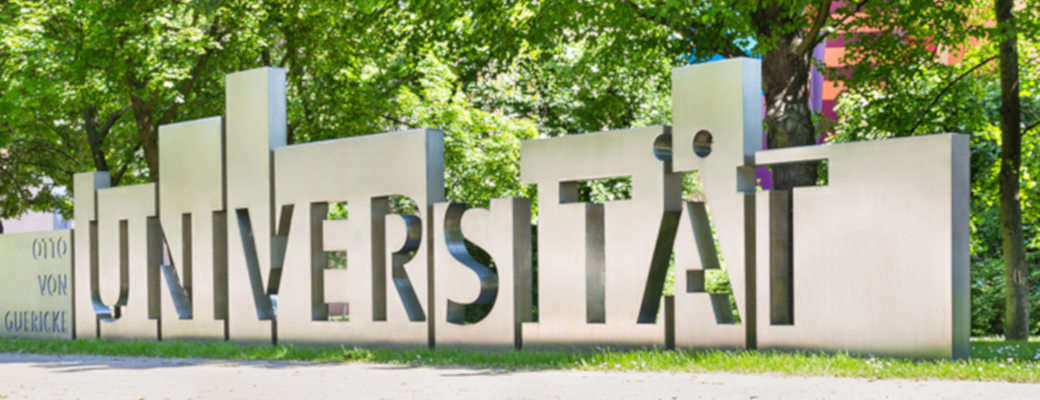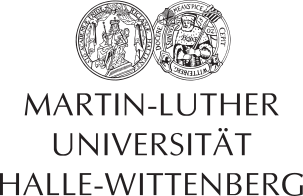Topics in Corporate Finance, Contracts, and Innovation
Lecturer: Dennis Hutschenreiter, PhD (IWH)
Date: winter term 2022/2023 / The course is taught in 10 weekly sessions of 120 minutes every Thursday (2 pm) starting October 13.
Venue: Halle Institute for Economic Research (IWH) – Member of the Leibniz Association, Kleine Maerkerstrasse 8, 06108 Halle (Saale), Germany, conference room (ground floor). In case of tightened COVID-19 regulations, parts of the course may take place online via Zoom.
Registration: Please register for the course until September 30, 2022 by sending an e-mail to cgde@iwh-halle.de.
The course is designed for at most 15 participants. Places will be allocated on a first come, first served basis.
Announcement: pdf
Description
This course covers the basics of the Theory of Corporate Finance and provides students with references for future study of the topics. Furthermore, recent applications of the intuitions from the models are provided and discussed by the students. Topics that will be analyzed include the optimal capital structure, optimal financial contracts, the use of the capital structure as a signaling device, control rights and venture capital contracts, corporate governance, and some implications for the Real Economy (innovation, competition). The course’s primary objective is to deliver a concise overview of the field and provide students with tools of economic analysis proper to address other questions related to Finance, Industrial Organization, and Economics of Information.
Outline
1. Introduction and Organization
1.1 A brief overview of the course (content, essential omissions)
1.2 Organizational issues (paper assignments to groups)
1.3 Introduction to Corporate Finance, Modigliani-Miller, and Reminder on Economics of Information
2. Corporate Financing under Moral Hazard
2.1 Outside financing capacity
2.1.1 Credit rationing in the fixed investment model
2.1.2 The continuous investment model and the equity multiplier
2.2 Determinants of the borrowing capacity
2.2.1 Diversification and cross-pledging
2.2.2 Collateral and the redeployability of assets
2.2.3.Group lending
3. Corporate Financing under Asymmetric Information
3.1 The lemons problem and market breakdown
3.1.1 Privately-known prospects model
3.1.2 Market breakdown and cross-subsidization
3.1.3 Application: SEOs
3.2 Dissipative signals
3.2.1 Application: Payout policy
3.2.2 Application: IPO underpricing
4. Control Rights and Corporate Governance
4.1 Control rights and pledgeable income
4.2. Contingent control rights and venture capital
5. Corporate Financing and the Real Economy
5.1 Product market interactions and strategic commitment (capital structure & contracts)
5.2 Corporate Governance and Innovation (The monitoring role of institutional owners)
5.3 Common Ownership: Implications, Incentives, Innovation, and potential caveats
6. Paper Presentations (student presentations and class discussions of recent papers in the field.)
Primary Reference
Tirole, J. (2006), „The Theory of Corporate Finance,“ Princeton University Press.
Assessments
The exam has two parts. First, there will be weekly problem sets. Second, participants are required to deliver a short presentation
of a related paper in class.























